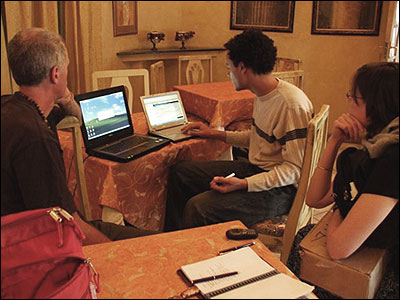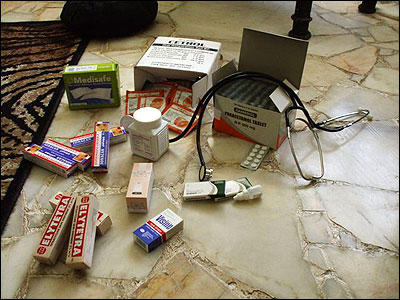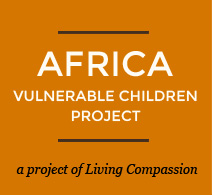Monday was a catch-up day for us. We spent several hours at Michelangelo's, the fancy Italian restaurant down the road, taking advantage of their free internet connection. We used much of the remainder of the day doing simple but necessary errands in town. It was a good and productive day for us, but it leaves us with little to report to those of you reading back home. We have decided to take advantage of this quiet spell to tell you about a couple of things that have happened behind the scenes but have not made it into the blog as yet.

Brian working on configuring our computers at Michelangelo.
We began our trip this summer with high hopes that we could buy a house in town to use as the Living Compassion headquarters in Ndola. We discovered the house in April, fell in love with it, and decided almost immediately to buy it. We made an offer before we left the country. We attempted to close the deal from the U.S. without any luck at all; the house is tangled in a divorce settlement and in the hands of lawyers. It was our intention to buy the house to use for our accommodations while we were here this July. And when this didn't happen, we figured it was because of the distance. We determined to put all of our energies into the closing as soon as we hit the ground.
Within hours of arriving, Dave met with the lawyers to see what could be worked out. They were perfectly willing to sell, but were unable to because of a legality that says property cannot be sold to an organization that is not legally registered in Zambia. We submitted our papers to be legally registered as an NGO in January, but they have yet to be processed. Eventually, we are sure, the papers will come through, but despite our determined efforts we have been unable to circumvent this problem. We asked the owners if they might consider allowing us to rent the place while we worked on the legal issue, but they would not agree. Finally we gave up.
We still very much hope to purchase a property of some sort here to become our headquarters. Before long, we feel certain, something suitable will appear. We have even hatched a dream of buying a farm at some point where we could grow vegetables and other things, and where we could retreat. We'll keep you posted.
And then there's the water project! We are determined to have a pump in our well in Kantolomba, a tank to put the water in, and a way to distribute the water to the people before we return home. We have run into a number of difficulties, as we might have expected. First, as mentioned in a previous blog, we are not able to use PlayPumps because they don't want to come to Zambia until they can install 100 pumps. Our next idea was to install a solar-powered pump like the one we have at the Monastery. This also has not proved practical, this time for financial reasons. It costs a great deal of money to set up such a system even in the U.S. Here, because of the difficulty and expense of obtaining the equipment, it costs even more. So we have settled on a traditional system using an AC pump, which we can obtain locally, and a large storage tank.
There is also a difficulty in our well. Last week we had the capacity of our well tested, and the amount of water the test said it will provide is much less than we were hoping for. We consulted with Mr. Chaila, the engineer who helped us dig the well. He believes strongly that the well will provide much more water. The type of rock we have, called "schist," is soft and crumbly, he told us, and susceptible to collapse. It is likely the channels providing water to the well have become blocked. We are negotiating with him to bring in a large compressor to force air in the hole and blow out the blockages. Afterwards we can test the capacity again, buy the correct pump, and, hopefully, install it before we go.
Monday ended after taking Heather to the airport to catch her flight back to Botswana. We expressed deep gratitude to her for coming and jumpstarting our medical program. She and Jen had gone shopping earlier in the day for all the pharmaceutical supplies needed to help the women with whom we had met the day before. It is a drop in the bucket, in one sense, to buy these simple supplies, but each of those women is a person with a need, a person like each of us whose life will be made more comfortable, and in some cases saved, by these medicines.

The first medical supplies for Kantolomba.
